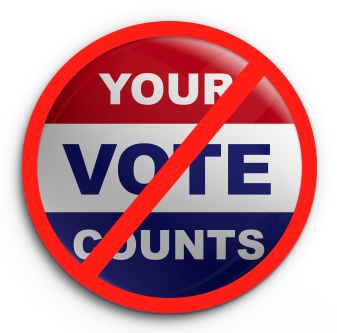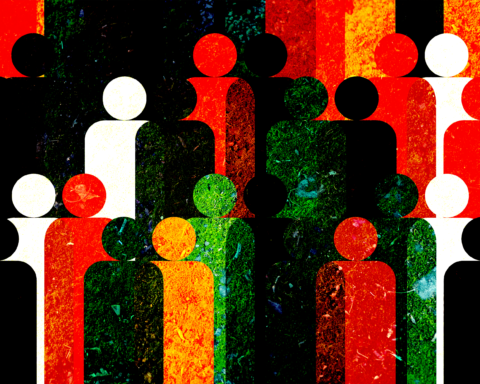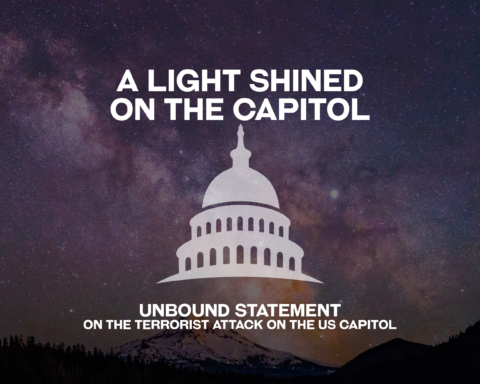
Testimony by Dorsey Nunn before the PC(USA) Drug Policy Task Force, February 14, 2015. Watch testimony in minutes 20:50 – 31:20 of this video of Day 1 of the Richmond Hearings.
I guess I’m the bad guy. I was raised in a crack house. I’ve been at this fight for 43 years. I’ve been convicted of first-degree murder; and I’m in the middle of my Job moment right now where my family is dying and all the rest of it, so bear with me. When I hear you all talking about violence, you must forgive Moses, and you must forgive that guy who cut off the ear when he came to meet Jesus. Because everybody’s able, or should be available, for redemption.
My house, my mother’s house was closed down eight times, and we never did address it as a medical issue, not in my mother’s lifetime, not in my father’s lifetime. I had two brothers die from AIDS, and one brother die from Hepatitis C. My mother had seven sons, and I’m the only one left. I just buried my daughter on January 2, buried my wife and buried most of my family. So when I say I’m in a Job moment, I’m in a Job moment. It used to be other stuff I used to read, but lately I’ve been reading the Bible a lot. Because half the people I know who read it don’t actually follow it.
I’m the Executive Director of Legal Services for Prisoners with Children, a public interest law office with an over 35-year history, and I’m the first of my kind. You won’t find another formerly incarcerated person convicted of first-degree murder that’s the head of a public interest law office. I’m also a co-founder of All of Us or None, an organizing initiative fighting structural discrimination that’s being led by formerly incarcerated people. Because most of the time when you all talk, you all very rarely include what I want or need, and my opinion don’t count. So you have had a whole host of experts, and the last person that you heard from today will probably be somebody like me.
___________________________________________
[People keep] saying drug war, and I actually think you’re committing a war on people. I ain’t never seen a cell full of dope, I’ve always seen cell-blocks full of people.
___________________________________________
So I assume that if there were doctors in Rome, probably the first thing you would ask any patient is: what is your problem and what do you need? So if there’s anything significant I’ve got to say, you probably need to start out there before you start out describing what you think I need, as opposed to me being able to lead my own fight for the stuff that I think will heal me. And I need to say, I ain’t used no drugs in 25 years. I am also the co-founder of a drug program, and we have provided over 100,000 units of services. And I didn’t get into it just for the fact of wanting to help addicts. I wanted to help my entire community.
 So my fight was about, when everybody demanded more police, when we started thinking about those of us that were out there is, how do we build better neighbors? Because if you focus on police, we might never get any money for treatment. So I asked the question: what was significant? I think what was really significant was white people started smoking dope. Because as long as you all thought it was about us, the laws were not changed. As soon as y’all start busting your own kids, then it became a little bit [different]. And I need to say I appreciate the person that used the term racism. The drug war is a racist act on communities of color where we use these polite words to get around what is actually happening.
So my fight was about, when everybody demanded more police, when we started thinking about those of us that were out there is, how do we build better neighbors? Because if you focus on police, we might never get any money for treatment. So I asked the question: what was significant? I think what was really significant was white people started smoking dope. Because as long as you all thought it was about us, the laws were not changed. As soon as y’all start busting your own kids, then it became a little bit [different]. And I need to say I appreciate the person that used the term racism. The drug war is a racist act on communities of color where we use these polite words to get around what is actually happening.
I wish I had the luxury of being able to say that this was a problem that I was working with. No it’s not; it’s a problem that has devastated me, it has devastated my neighbors, it has devastated my community, and we have been marginalized. Now I am sitting there thinking about what are some of the end results of this stuff, because somebody asked me that question. People died. People went to jail and prison. People got sick, children were and are denied access to quality health care, people were and are being denied access to employment, were and are being denied access to food, clothing and shelter, and my community was marginalized.
___________________________________________
The other thing that was lost in this war is our ability to vote.
___________________________________________
So I don’t know how to explain war to you without me saying drug war, and I actually think you’re committing a war on people. I ain’t never seen a cell full of dope, I’ve always seen cell-blocks full of people. I’ve never seen you all lockup dope, I’ve never seen dope in handcuffs. I’ve seen people in handcuffs. So every time you all define it as that, somehow it seems to sterilize it to the point that you don’t recognize that groups of people are being attacked.
 The other thing that was lost in this war is our ability to vote. So if there’s anything I actually want to tell you is about my ability to vote, my ability to work, my ability to safe housing, because at this point we have been paying taxes for 25 years. And I don’t even request stuff any more. I demand a right to have access to everything where my tax dollars are being spent, or call me a nonprofit and stop taking my stuff, point blank.
The other thing that was lost in this war is our ability to vote. So if there’s anything I actually want to tell you is about my ability to vote, my ability to work, my ability to safe housing, because at this point we have been paying taxes for 25 years. And I don’t even request stuff any more. I demand a right to have access to everything where my tax dollars are being spent, or call me a nonprofit and stop taking my stuff, point blank.
And by the way, the only way to get treatment shouldn’t be that you have to be fingerprinted first. If somebody would have offered me help earlier in the process I probably would’ve pulled it up at 19 instead of going in at 20 for first-degree murder. That help was unavailable, and the only time I got any services was when I smeared my finger in ink on a card. It shouldn’t be that way or that difficult.
And the other thing I need to say is, the greatest thing I recovered from is not drugs: it’s slavery. It’s not drugs.
___________________________________________
At 19 I didn’t recognize I had choices. At 19 when I was in pain I used dope. At 63 I’m using the Bible. The point is what you make available to people, and it should never be that drugs are more available than books.
___________________________________________
Other things I need to say: We need to ban the box and structural discrimination. I think I’m entitled to public safety just like you. I think what makes our communities and our neighborhood safe is the availability of food, clothing and shelter. At 19 I didn’t recognize I had choices. At 19 when I was in pain I used dope. At 63 I’m using the Bible. The point is what you make available to people, and it should never be that drugs are more available than books.
 You all changed the policy on marijuana in this state, and you all just applaud and walk away. It was people like me that maintained your market when it was illegal. And I need to say, how can we all keep passing drug laws and the first thing you do is you exclude people of color who maintain the market. So all the kids standing out in the street corners grinding and making a living because we don’t want to let them into good jobs – what do we do with them?
You all changed the policy on marijuana in this state, and you all just applaud and walk away. It was people like me that maintained your market when it was illegal. And I need to say, how can we all keep passing drug laws and the first thing you do is you exclude people of color who maintain the market. So all the kids standing out in the street corners grinding and making a living because we don’t want to let them into good jobs – what do we do with them?
It just so happens that when I went to prison I acquired an education. At this particular point the reason that I got into the other fight was more about the community, because East Palo Alto was the murder capital of the United States, I didn’t think that anybody else could go to my community and do what we needed to do.
*****
AUTHOR BIO: Dorsey Nunn is the Executive Director of Legal Services for Prisoners with Children in San Francisco and co-founder of All of Us or None.





Unbound Social